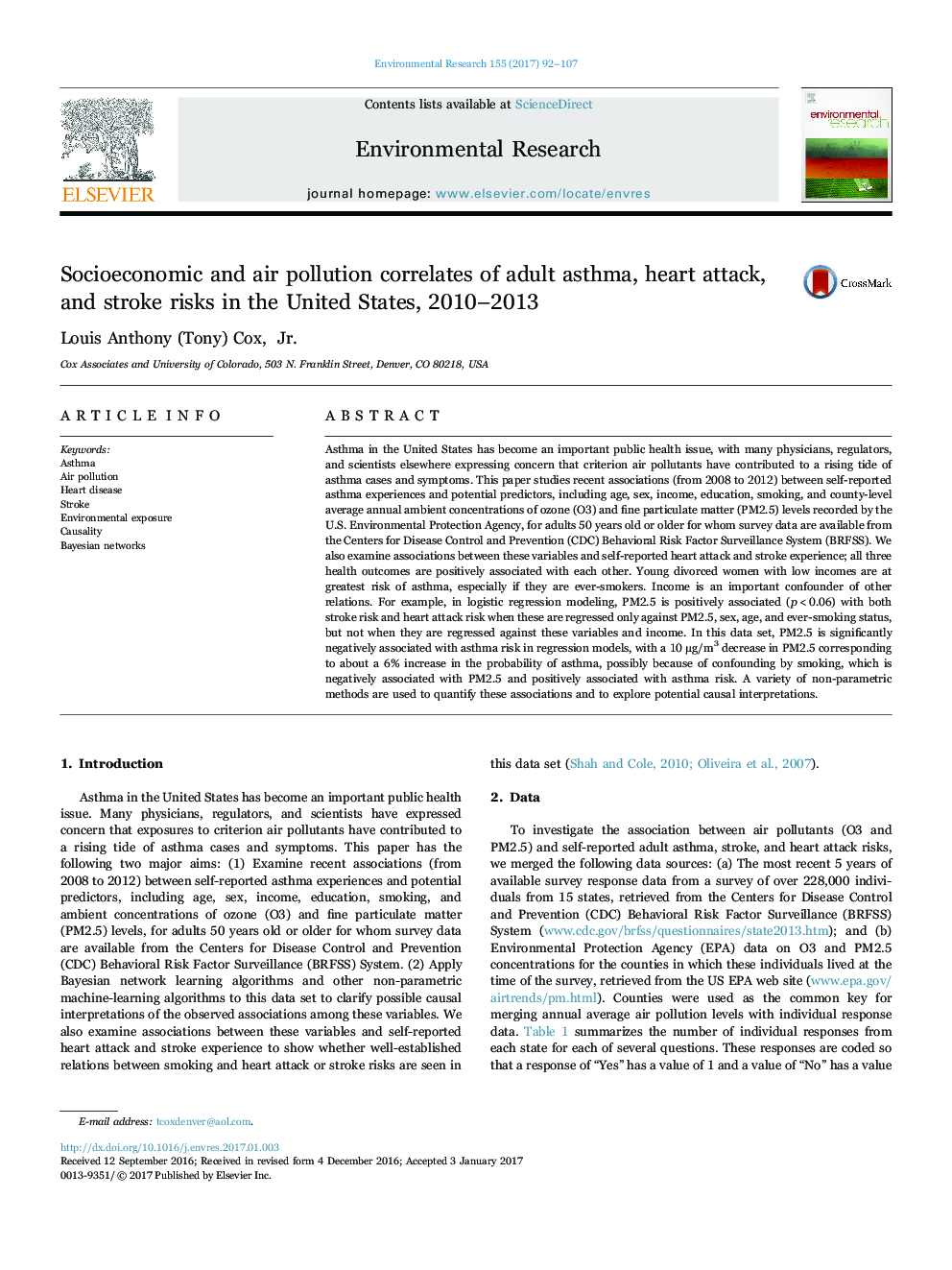| کد مقاله | کد نشریه | سال انتشار | مقاله انگلیسی | نسخه تمام متن |
|---|---|---|---|---|
| 5756223 | 1622548 | 2017 | 16 صفحه PDF | دانلود رایگان |
عنوان انگلیسی مقاله ISI
Socioeconomic and air pollution correlates of adult asthma, heart attack, and stroke risks in the United States, 2010-2013
ترجمه فارسی عنوان
ارتباطات آلودگی اجتماعی و اقتصادی و آلودگی بالقوه آسم بزرگسالان، حمله قلبی و سکته مغزی در ایالات متحده، 2010-2013
دانلود مقاله + سفارش ترجمه
دانلود مقاله ISI انگلیسی
رایگان برای ایرانیان
کلمات کلیدی
آسم، آلودگی هوا، بیماری قلبی، سکته مغزی تماس با محیط زیست، علیت، شبکه های بیزی،
موضوعات مرتبط
علوم زیستی و بیوفناوری
علوم محیط زیست
بهداشت، سم شناسی و جهش زایی
چکیده انگلیسی
Asthma in the United States has become an important public health issue, with many physicians, regulators, and scientists elsewhere expressing concern that criterion air pollutants have contributed to a rising tide of asthma cases and symptoms. This paper studies recent associations (from 2008 to 2012) between self-reported asthma experiences and potential predictors, including age, sex, income, education, smoking, and county-level average annual ambient concentrations of ozone (O3) and fine particulate matter (PM2.5) levels recorded by the U.S. Environmental Protection Agency, for adults 50 years old or older for whom survey data are available from the Centers for Disease Control and Prevention (CDC) Behavioral Risk Factor Surveillance System (BRFSS). We also examine associations between these variables and self-reported heart attack and stroke experience; all three health outcomes are positively associated with each other. Young divorced women with low incomes are at greatest risk of asthma, especially if they are ever-smokers. Income is an important confounder of other relations. For example, in logistic regression modeling, PM2.5 is positively associated (p<0.06) with both stroke risk and heart attack risk when these are regressed only against PM2.5, sex, age, and ever-smoking status, but not when they are regressed against these variables and income. In this data set, PM2.5 is significantly negatively associated with asthma risk in regression models, with a 10 μg/m3 decrease in PM2.5 corresponding to about a 6% increase in the probability of asthma, possibly because of confounding by smoking, which is negatively associated with PM2.5 and positively associated with asthma risk. A variety of non-parametric methods are used to quantify these associations and to explore potential causal interpretations.
ناشر
Database: Elsevier - ScienceDirect (ساینس دایرکت)
Journal: Environmental Research - Volume 155, May 2017, Pages 92-107
Journal: Environmental Research - Volume 155, May 2017, Pages 92-107
نویسندگان
Louis Anthony (Tony) Jr.,
